#UnBlockYourself
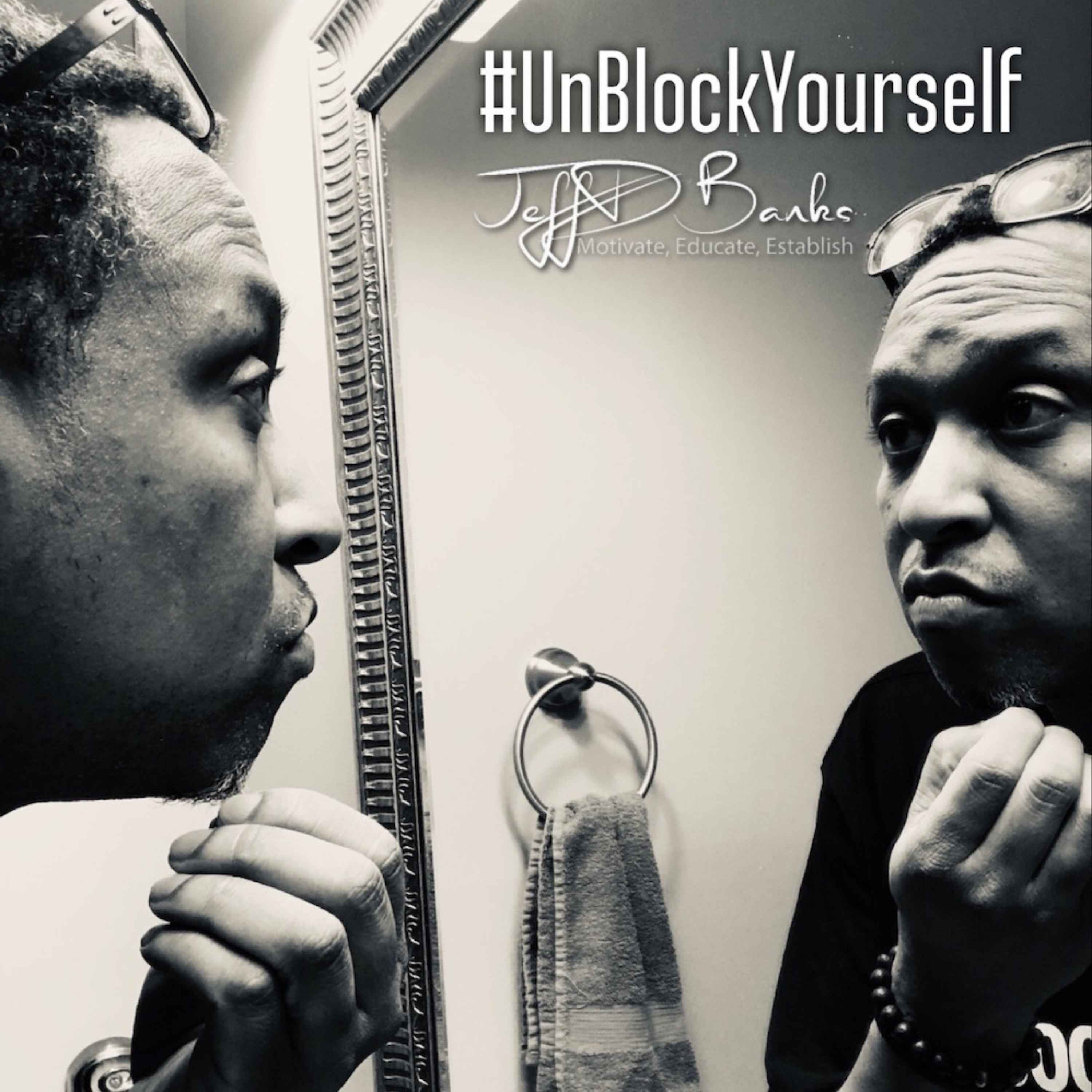
#UnBlockYourself helps you get out of your own way. Unblock your mind, body, spirit, finances, and social interactions to increase to become all that you are called to be!
#UnBlockYourself helps you get out of your own way. Unblock your mind, body, spirit, finances, and social interactions to increase to become all that you are called to be!
Episodes
Episodes
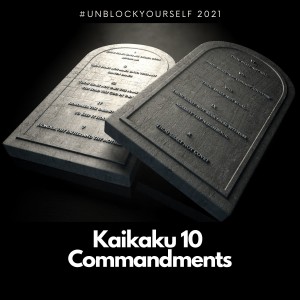


Monday Mar 29, 2021
10 Commandments of Kaikaku
Monday Mar 29, 2021
Monday Mar 29, 2021
Kaizen – slow, gradual change of an existing practice, system, or process.
Kaizen Event – a time set aside to make rapid changes of a targeted aspect of a system or process.
Kaikaku – complete upgrade or replacement of a system or process
“Out with the old, in with the new”
Using Kaikaku breaks existing paradigms (tradition) and throws out old ways of thinking (we’ve always done it that way). It is focused on achieving improvement like kaizen, but not gradually and slowly, but ramming the whole system with a wrecking ball.
Many companies use Hiroyuki Hirano's Ten Commanments of Kaikaku, but we will apply them to our personal lives (aka your business, remember you are the CEO of your own company).
They are:
Throw out the traditional concept of what you are doing. (You want to change your results)
Think of how the new method will work; not how it won't work.
Don't accept excuses.
Totally deny the status quo, be ready to start new.
Don't seek perfection. A 50% implementation rate is fine as long as it is done on the spot. “Done is better than getting it perfect.”
Correct mistakes the moment they are found.
Don't spend money on Kaikaku.
Problems give you a chance to use your brains.
Ask “why” five times. (The 5 degrees or layers of why)
Ideas from ten people are better than one person's knowledge.
*Sources: Reverscore.com, and Graphicproducts.com



Friday Mar 26, 2021
Kaizen Events
Friday Mar 26, 2021
Friday Mar 26, 2021
Yesterday we talked about how the Kaizen approach breaks things down into bite size minimalistic pieces. This is how we eat our elephant!
Making continuous improvements everyday in your life raises your standards everyday. You are much better today than you were yesterday. Today we will look forward to planning an event, to where all parties involved will have input.
Kaizen events are typically brief, focused improvement projects where people, including the management team, participate in analyzing their Value Stream Map (VSM) to solve a specific problem. - Reverscore.com
The daily Kaizen approach to eliminating waste is on a tiny scale to improve your life relationships, and productivity, the Kaizen events are planned out projects to tackle one specific obstacle at a time, that will also have great impact when accomplished. So pre-planning will be involved.
Let’s plan a change for the better that will have great impact!
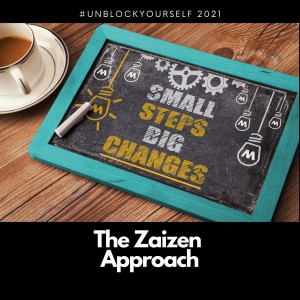


Thursday Mar 25, 2021
The Kaizen Approach
Thursday Mar 25, 2021
Thursday Mar 25, 2021
One of my favorite mentors, Brian Tracy, usually will pose this question: How do you eat an elephant? One bite at a time!
Kaizen is typically a Japanese term that means “continuous improvement”, and it is said that there are four types of Zaizen:
1st approach is kaizen teian.
Kaizen Teian: Bottom-Up Improvement
Kaizen Teian describes a form of improvement where people participate to improve their own processes. This bottom-up type of Kaizen drives a cultural transformation because it requires everyone to think about improvement every day, everywhere. At its core, Kaizen Teian is about actively involving all people in improvement. If you want to set out in creating a continuous improvement culture in your organization, you should start with Kaizen Teian.
Kaizen Teian encourages every member of the workforce, from leadership to frontline workers, to propose changes that can improve workflow. The idea is that those workers who are in the gemba, or real place, are those more likely to identify real opportunities for improving the flow of their processes.
To be successful in Kaizen Teian, one must always be looking to eliminate the eight forms of waste:
Defects: Scrap or products that require rework.
Excess processing: Products that must be repaired to satisfy customers needs.
Overproduction: When there are more parts in production than customers are purchasing. This type of waste spells big trouble for an organization.
Waiting: A person or process inaction on the manufacturing line.
Inventory: A valuable product or material that is waiting for processing or to be sold.
Transportation: Moving a product or material and the costs generated by this process.
Moving: Excessive movement of people or machines. It is more common to talk about people movement, as this leads to wasted effort and time.
Non-utilized talent: When the management team fails to ensure that all the potential and experience of its people are being used. This is the worst of the eight wastes.
*From reverscore.com*
A psychiatrist said that we fail at so many things because of the questions we ask ourselves. He says that the brain cannot turn down a question directly given to it. It will continue to search and provide answers until it has satisfied the task. Small precise questions can improve your mental health and performance because like a slow computer, you are not slowed down by all the tasks running in the background.
“We can do no great things, only small things with great love. It is not how much we do, but how much love we put into the doing, and it is not how much we give, but how much love we put into the giving. To God, there’s nothing small. “ - Mother Teresa
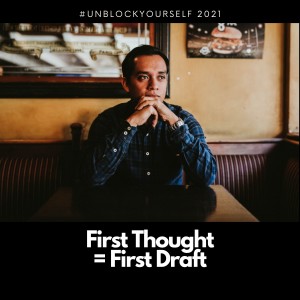


Wednesday Mar 24, 2021
First Thoughts = First Drafts
Wednesday Mar 24, 2021
Wednesday Mar 24, 2021
Take your thoughts seriously. They are the first drafts to your next steps in life (if you choose to take action on them).
Every action affects the rest of your life, but every action starts as a thought. We have to think how important it is to keep feeding your mind the thought producing information that will be in favor of the outcome that you seek.
If you want to lose weight, you cannot load up on information going to the five senses of junk food and unhealthy lifestyles. The senses pretty much frame your reality. So input going to them will start to shape your thoughts and behaviors to create, obtain, and scheme until it satisfies its desires.
You get what you want. If you want something, and say don’t, that will come true. You think it won’t and you hear yourself saying it, so you are starting the process of building the reality of feeding yourself information that you can’t, until it is undeniably true.
Your INput determines your OUTcome.
I’ll post the Ebook link in the comments.



Tuesday Mar 23, 2021
Your Connected Mind Garden
Tuesday Mar 23, 2021
Tuesday Mar 23, 2021
Yesterday we walked through the elements and meaning of a Japanese Garden. Today I wanted to create a similar miniature garden to be a place to connect and reflect.
Mizu = Water
First we will lay our sand. White sand is often used to represent water, and that water represents peace, stillness, and also emptiness, meant for less distractions for clarity. “He makes me lie down in green pastures, he leads me beside quiet waters, he refreshes my soul. He guides me along the right paths for his name’s sake.” Psalm 23:2-3
Its also cleansing, and able to make holy.
Ishi = Rocks
Stones will be our strong points in the garden, the larger ones will speak of strength, power, and words of faith, peace and healing. The smaller ones will be used to form paths. “I tell you,” he replied, “if they keep quiet, the stones will cry out.” Luke 19:40
Shokobutsu = Plants
The Plants selected represent life and flexibility, growth, and tranquility.
“Consider how the wild flowers grow. They do not labor or spin. Yet I tell you, not even Solomon in all his splendor was dressed like one of these.”
Luke 12:27
Tenkeibutsu = Ornaments
The lights being used are to shine light on a path, which represents His word as a light unto my feet. “Your word is a lamp for my feet, a light on my path.” Psalm 119:105
Shakkei = Borrowed Scenery
Shakkei is the design of the garden to show the connection between all things not only just in it, but surrounding it too. Setting this in a tray makes it a portable bridge to a secret place in my heart and head.
Jesus had a spot in a real garden to pray, that was a place he could think and have His alone time with God. When we sit and need things to start us off, “Finally, brothers and sisters, whatever is true, whatever is noble, whatever is right, whatever is pure, whatever is lovely, whatever is admirable—if anything is excellent or praiseworthy—think about such things.” Phillippians 4:8 seems to be my go to scripture.
Hashi = Bridges
Speaking of bridges, I’m going to have to build a little bridge myself, but this whole thing is a bridge. When I am able to sit in my thinking chair and look into this garden, I can instantly cross over from the cares of this world, into my own little garden that has faith, serenity, balance, peace, harmony, and hope!
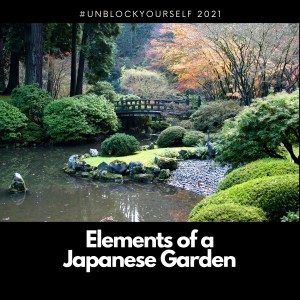


Monday Mar 22, 2021
Elements of a Japanese Garden
Monday Mar 22, 2021
Monday Mar 22, 2021
Ishi = Rocks
Large stone at the entrance welcome you in.
The stones represent mountains, and are symbols of strength and power. They are also used to form paths.
Mizu = Water
Water found in the garden is a vital element to life, present there in ponds, streams, and waterfalls, water will usually be found in two states, flowing, and still. Water usually represents purification and cleansing, and the flowing will be like the thoughts emotions and energy flowing around us. The stillness in standing water shows peace, and a place of reflection of self and events.
Shokobutsu = Plants
Plants are selected to be planted in the garden in variety of ways, some choose evergreens because the stay green all year round. Some choose plants that will bloom in certain seasons, and will plant so all seasons will be represented. Also the idea behind trees would be how the trees would show strength in flexibility.
Tenkeibutsu = Ornaments
Ornaments in the garden have their on representations, like Lanterns, being used to shine light on a path, which could also be symbols of enlightenment. Others might include frogs, basins and gates, all having their meaning to the person planting the garden.
Shakkei = Borrowed Scenery
Shakkei is the design of the garden to show the connection between all things not only just in it, but surrounding it too. The gardens a little place, taking up a little bit of space, but in the grand scheme of things, it is still a part of the land, landscape, yard, block, subdivision, city, county, nation, this world. We all may be a tiny piece of the population, but we are here and will make an impact on more than just ourselves.
Hashi = Bridges
Its been said that bridges symbolize a person's journey between planes of existence, spiritual and physical realms, and just walking across a bridge can help move you from the worries of the world of humans and work, and stress into a wider world you have created for yourself to allow a moment of harmony and appreciation for what is truly important, your peaceful mental stability.
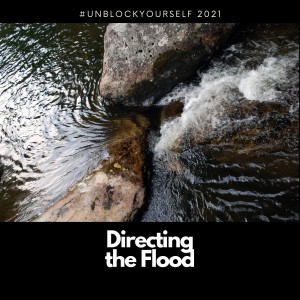


Friday Mar 19, 2021
Directing the Flood
Friday Mar 19, 2021
Friday Mar 19, 2021
I’ve noticed that whenever I’m in a great state of being in the moment, connected with the things around me, listening to God, that there was, is, and will be a flood of emotions that swirl around me.
A tidal wave of thoughts usually will come crashing through the party like, “I know I’m forgetting something”, or, “why did my friend say that to me 5 years ago”, or, why couldn’t I have waited for just a little longer, things would be so different now.”.
Just know Everything you need for the moment is available to you at that point. The floods come to take us off task. There is a small portion of them that we need because a lot of times they come up because they were not addressed properly. The floods of emotions and thoughts usually will take us out of the moment, and into the past or the future. With this distraction in play, we find that our connections to things become broken, and it is hard to get right back into it.
When we direct the flood, we can accept those thoughts and emotions not as a distractions, but opportunities to address certain things the right way, and connect them to the experience we are experiencing in the moment. When you are in control, you can accept certain thoughts, and guide them into a wealth of knowledge, and also view a thought and direct it to the “not right now” reservoir.
Ultimately we add the thoughts coming in as an opportunity to grow. When you are growing, you are gaining, and also living; but when you are not growing, idle or regressing, it is a slow form of deterioration, or not living.
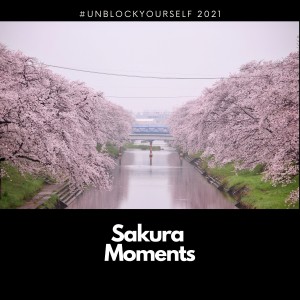


Thursday Mar 18, 2021
Sakura Moments
Thursday Mar 18, 2021
Thursday Mar 18, 2021
In Japan cheery blossom festivals and viewing parties all over. Many people take time to sit outside and bask in the beauty of it all. But it does not last long.
There is such a fixation to enjoy the scenery because it only lasts about 2 weeks, from the blessing to the falling of the petals, and then it’s gone. So for two weeks every meeting with friends underneath the trees is an understood Ichigo Ichie, once in a lifetime gathering.
The scenery may change by the next day, the rain could keep you away, or a strong wing can blow away the petals from the trees, each moment seems to be giving an opportunity to sit down and enjoy, because tomorrow it may be gone, at least for a year.
“A person can do nothing better than to eat and drink and find satisfaction in their own toil. This too, I see, is from the hand of God, for without him, who can eat or find enjoyment?”
Ecclesiastes 2:24-25 NIV







